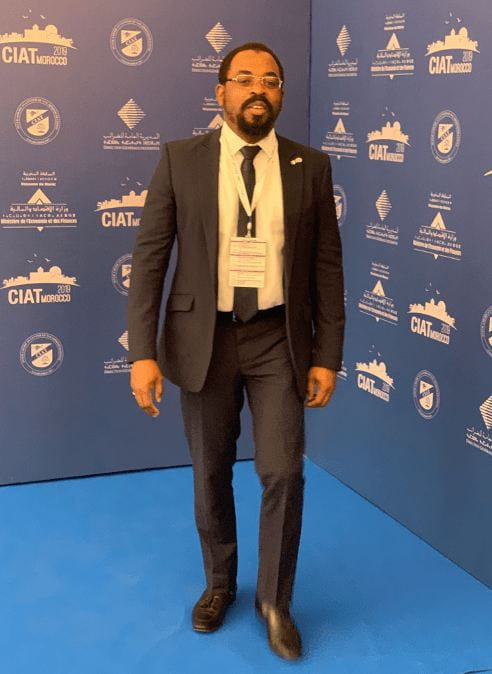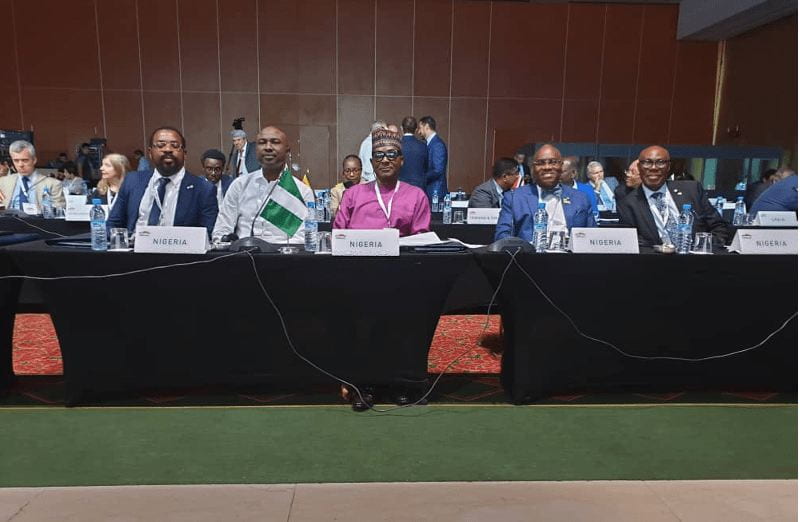Guest blog written by Fuad Kayode Laguda

I must disclose that coming for this course was a product of careful decision-making and determination. It is not easy combining my job schedules with the academic tasks. The course structure, coupled with the quality of the administrators, lecturers and fellow colleagues, actually surpasses my expectations. It exposed me to improved patience, persistence, importance of building, having a team, diverse way of solving problems and formulating policy. This course has allowed me to understand and showcase the Problem Driven Iterative Adaptation (PDIA) to my authorisers and other decision makers.
The key learnings were too numerous to explain in details. However, I will not forget the “Fishbone” as well as the sequential techniques of problem solving. IPP has enriched my proficiency in critical thinking and programmatic application of various approaches to identifying and solving complex problems through strong network for consultation and collaboration as well as partnership for actions with different national or corporate decision makers.
However, IPP has made me more confident, courageous in handling data and emphasis on the importance of mobilising and working with a team(s) to implement the data.
This course has taught me to appreciate little successes and that every effort taken to solve challenges are not a waste. It builds me for connecting with authority and building legitimacy around my actions. It has allowed me look for opportunity in the problems I proposed to solve.
The IPP networking system is highly remarkable to the extent that implementation of the instructions, ideas and policy innovations passed in the classes (on-site and off-site) becomes successfully feasible. PDIA is a remarkable learning for me because it opens my eyes to gaining the confidence of authorisers through the cultivation of informal engagement with them. PDIA taught me to manage constructively every shortfall and celebrate every slight achievement.
Two of my identified policy ideas were to curb poor tax collection and non-compliance as implemented by the Joint Tax Board (JTB) using the Federal Inland Revenue Service (FIRS) and State Internal Revenue Service (SIRS).
This course has empowered me on how to cultivate strong and sustainable networks with authorizers to look into my policy solutions. This course has built my general acceptance in the organisation; it also strengthens my relations with the top-level authorizers, at the FIRS, who subsequently developed unwavering interests in seeing my Fishbone solution fully implemented in improving operational efficiency in tax collection and non-compliance in Nigeria.
Invariably, I have made some insightful progress in pushing my policy ideas and solutions in the Fishbone to government agenda.
Some of my authorizers are high-profile national and organisational decision makers who want to holistically solve the problems of poor tax collection and the accompanying non-compliance in the ecosystem. In addition to this, my Fishbone idea has led me to represent the FIRS at international tax conference at Marrakech, Morocco. Where I was able to network with diverse international practitioners on the implementation of my ideas in amelioration or totally eradicating the menaces.

Upon my return from the conference, I have had the opportunity to contribute to certain tasks that align with the ideas and innovative solutions contained in my Fishbone. I am hoping to execute another policy idea (data management) in my organisation to prevent the unnecessary revenue leakage that emanates from poor tax collection and the attendant non-compliance.
What actually motivated me is the professional capability of the course instructors who are always inquisitive to make the PDIA comprehensive to us as well as the manner they receive feedback from us. The course instructors are very innovative and energetic for their tasks in making us feel encouraged and motivated.
Sometimes, I felt elated by the passionate attitude of the instructors in making sure we manage our connections and develop collaborative approach to addressing our diverse policy problems. This course really fosters a significant change in my professional outlook and personal handling of complex tax-related cases. However, the cadre of my fellow coursemates is extremely suitable for my liking to develop a well-rounded approach to successfully implementing the PDIA for organisational effectiveness and efficiency. This motivating factor changed my approach to solving identified problems. It enabled me to cherish the impacts of networking and team building in getting any problems addressed.
The knowledge I have gained will surely have recurrent usage. I have seen two of my PDIA ideas implemented by top-level authorizers. I have been sent for international tax conference to obtained first-hand data on the feasibility of my Fishbone for solving complex tax problems. Based on the foregoing, I will be exhaustively working to ensure that Nigerian policymakers give attention to the benefits of PDIA in boosting government revenue through efficient tax collection and enforcement of rules to improve compliance among taxpayers.
The knowledge gained from this course has given me great frontier in my personal and professional career. I am currently on a short inspectorate course on Tax Management by my organisation to enable me combine learning with practice. I must confess that the usage of what I have learned in IPP will take me far in the ecosystem of problem solving and decision making officially and nationally.
Apart from recommending IPP course and PDIA to many of my authorizers, co-staffs and friends to enrol for this course, I will need to invest massively in successfully implementing the Fishbone in preventing non-compliance and enhancing better framework to improving tax collection in Nigeria. I will be applying some problem solving approaches such as waterfall and agile, functionality, legitimacy, and some case analysis needed for unveiling the roots of any perceived problems and policy ideas.
My words of wisdom for fellow PDIA practitioners are focused on how best we can secure the continuity of this wonderful intellectual family. I will propose that we continue to collaborate on addressing personal challenges affecting our institutions and development ecosystem.
I must underscore the fact that we must continually apply the PDIA in our personal and professional endeavour; we invariably need to build strong network to rally around any of our colleagues’ perceived policy challenges and come up with refined answer for unravelling the mysteries behind the identified public problems.
We need to build a strong feedback system that will allow the PDIA practitioners to brainstorm and widely consult on policy ideas and solutions. My words also justify the benefits patience, perseverance, courage and forward-based thinking in handling delicate policy intricacies that may truncate solution prospects.
Frederick Hegel stated that the “end is far better than the beginning”.
Hence, persistent efforts and little trials will always push us beyond the limits in putting our proposed policy solutions into fruition.
This is a blog series written by the alumni of the Implementing Public Policy Executive Education Program at the Harvard Kennedy School. Participants successfully completed this 7-month blended learning course in December 2019. These are their learning journey stories.
To learn more about Implementing Public Policy (IPP) watch the course and testimonial video, listen to the podcast, and visit the course website.